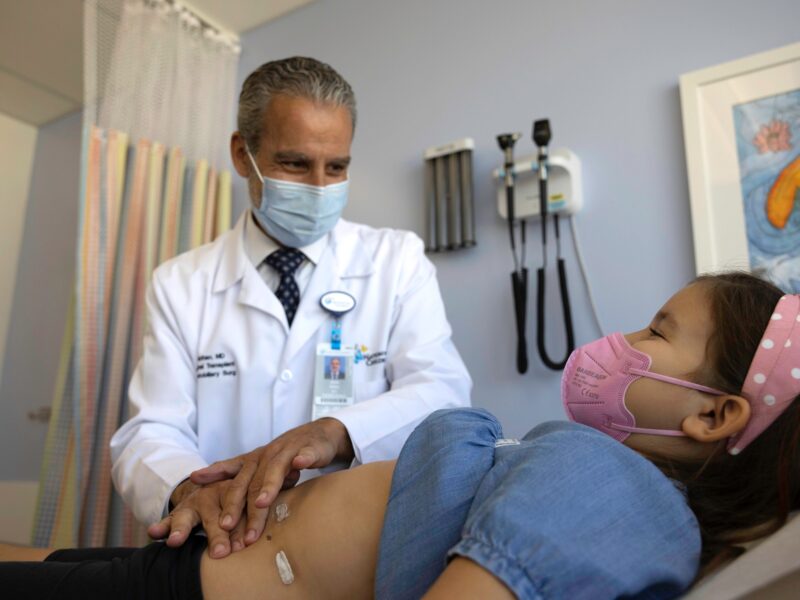New Guidelines Better Diagnose Common GI Disorders
New Guidelines Better Diagnose Common GI Disorders https://pediatricsnationwide.org/wp-content/themes/corpus/images/empty/thumbnail.jpg 150 150 Jeb Phillips Jeb Phillips https://pediatricsnationwide.org/wp-content/uploads/2021/03/Jeb-Phillips.jpg- October 18, 2016
- Jeb Phillips
The new Rome IV criteria offer guidance to common but often misunderstood conditions.
Because there are no clear causes of functional gastrointestinal disorders (FGIDs), diagnosis and treatment can be difficult. Some physicians and parents may doubt the disorders exist at all, although pediatric gastroenterologists estimate they affect 30 to 40 percent of children. However, recently released best-practice guidelines should help primary care physicians and specialists alike.
The guidelines, collectively called the “Rome IV criteria,” are the first revision of standards from the international, FGID-focused Rome Foundation in a decade. They cover all ages and a wide range of disorders, including functional nausea, functional constipation and irritable bowel syndrome.
“These criteria help people see these disorders as more legitimate,” says Carlo Di Lorenzo, MD, chief of Gastroenterology, Hepatology and Nutrition at Nationwide Children’s Hospital. “There has been an exponential growth in research. These conditions are very common and very costly. The criteria allow doctors to make a diagnosis more easily, and they allow patients to put a name to what they have.”
Dr. Di Lorenzo chaired the six-person committee that developed the criteria for children and adolescents, and he is co-editor of the new book, Rome IV Pediatric Functional Gastrointestinal Disorders – Disorders of Gut-Brain Interaction. Miguel Saps, MD, attending gastroenterologist and director of research for the Motility Center at Nationwide Children’s, was also one of the international pediatric committee members.
Among the most important developments of the last decade is the growing ability to rely on symptoms alone to diagnose FGIDs, according to Dr. Di Lorenzo, who is also a professor of Clinical Pediatrics at The Ohio State University College of Medicine. Past criteria have included the advice to diagnose an FGID after “no evidence of an organic disease” is found, which some clinicians understood as a directive to order exclusionary tests.
“It’s often not necessary to do dozens of tests to rule out every possible disease until you are left with a diagnosis of irritable bowel syndrome or dyspepsia, for example,” Dr. Di Lorenzo says. “You can take a detailed medical history, perform a thorough physical examination and make a diagnosis in many cases.”
As the subtitle of Dr. Di Lorenzo’s book suggests, researchers have found strong links between stress, anxiety, depression, and other psychological issues and FGIDs – part of the so-called “brain-gut interaction.”
Medications can be effective for some disorders, but so can non-medical treatment options such as acupuncture, yoga, counseling and relaxation exercises.
“Patients, parents and clinicians may resist the idea that anxiety plays a role in generating symptoms, and they may also resist alternative treatment strategies,” says Dr. Di Lorenzo. “Diagnosis and treatment can be driven by how willing patients are to accept them.”
A set of criteria from experts that validates these concepts potentially allows patients with FGIDs to start feeling better sooner, which is beneficial for physicians and parents alike.
References:
- Hyams JS, Di Lorenzo C, Saps M, Shulman RJ, Staiano A, van Tilburg M. Childhood functional gastrointestinal disorders: child/adolescent. Gastroenterology. 2016 May;150(6):1456-1468.
- Di Lorenzo C, Nurko S, eds. Rome IV Pediatric Functional Gastrointestinal Disorders – Disorders of Gut-Brain Interaction. (Raleigh, NC: The Rome Foundation, 2016)
About the author
Jeb is the Managing Editor, Executive Communications, in the Department of Marketing and Public Relations at Nationwide Children's Hospital. He contributes feature stories and research news to PediatricsOnline, the hospital’s electronic newsletter for physicians and other health care providers, and to Pediatrics Nationwide. He has served as a communications specialist at the Center for Injury Research and Policy at The Research Institute and came to Nationwide Children’s after 14-year career as daily newspaper reporter, most recently at The Columbus Dispatch.
-
Jeb Phillipshttps://pediatricsnationwide.org/author/jeb-phillips/October 13, 2015
-
Jeb Phillipshttps://pediatricsnationwide.org/author/jeb-phillips/
-
Jeb Phillipshttps://pediatricsnationwide.org/author/jeb-phillips/November 24, 2015
-
Jeb Phillipshttps://pediatricsnationwide.org/author/jeb-phillips/January 19, 2016
- Post Tags:
- Gastroenterology and Hepatology
- Posted In:
- In Brief






